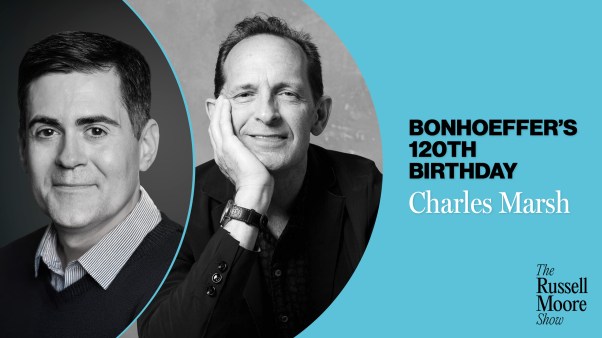After years as a trauma surgeon working in a high-pressure emergency-room environment, I began writing about medical topics through a Christian lens. During this period, dozens of doctors in training have reached out with some version of this question: “How do I grow in faith while working in medicine?”
The inquiry might appear simple on the surface. Yet it arises from a host of complex challenges to the mind, heart, and soul that weigh with special heaviness upon those laboring to help the sick.
How can you grow in faith, they ask, when you’ve held a dying child for the third time in a week and couldn’t help? How can you honor God when the demands of medicine tempt you to idolize work? When the patient you saved from a gunshot wound dies of a drug overdose a week later, how can you cling to assurances of God’s goodness?
Thankfully, a recent book offers a cool cup of water to those navigating such dilemmas. In Scripture and Scrubs: A Christian Calling to Healthcare, three Cedarville University professors—social worker Michael Sherr, nursing school dean Angelia Mickle, and theologian Jason Lee—combine clinical experience with biblical insights, guiding health workers toward a gospel-centered view of their profession.
The authors address their book to everyonein health care, from doctors and nurses to phlebotomists, nutritionists, physical therapists, and more. Its mission, they write, is “to help you grasp how important it is for Christians to serve in health care and to inspire you to see your role through God’s eternal purpose as revealed in Scripture.” Scripture and Scrubs gives health care professionals life-giving perspective on guarding their hearts, as well as strategies to persevere in faith—and even flourish—while serving on the medical frontlines.
Health care professionals regularly encounter the ugly ramifications of life in a fallen world. People in other walks of life certainly deal with suffering, pain, grief, and death. But those who walk hospital corridors nearly every day witness such brokenness far more than most. Unsurprisingly, medical workers face frequent mental health struggles, with almost half reporting burnout and one-fourth struggling with depression.
The authors of Scripture and Scrubs acknowledge these challenges. “It is dangerous and wearisome on the front lines,” they write. “Health professionals have some of the highest rates of vicarious trauma, burnout, drug and alcohol addiction, and suicidal ideation.” However, while many administrative efforts to prevent burnout focus on the clinical work environment, Sherr, Mickle, and Lee view such initiatives as tangential to the root issue.
More than stress-reduction programs and reduced work hours, health professionals need Christ:
Apart from Christ, it becomes too easy to get burned out from all the politics in health care. It becomes too easy to turn to self-medication or other destructive methods to escape from stress. It becomes too easy to allow ambition to zap their joy in serving others. In contrast, when you’re practicing with unveiled freedom, placing your confidence in Christ, making him preeminent over your professional practice, you will most certainly point others toward permanent glory.
How do Chrisitan health professionals uphold this charge to make Christ preeminent? While many struggling health care workers strive for purely practical answers, Sherr, Mickle, and Lee argue that cultivating the right mindset is paramount. More important than taming one’s schedule, seeking time off, or finding the right Bible app is learning to view medicine as a ministry of common grace. “As a servant of common grace,” the authors write, “you work every shift as God’s representative where you help temporarily restrain and mitigate the damaging consequences of sin and enable people to experience the goodness of his creation.”
This view of medicine imbues health care practice with heavenly importance. It shatters the notion of an inherent conflict between work and discipleship. Many questions I receive from medical trainees presume that professional obligations must compete with the Christian walk, like rams with interlocking horns shoving against each other. But Scripture and Scrubs refutes such a dichotomy.
Echoing Paul’s exhortation in Colossians 3:17 to “do [everything] in the name of the Lord Jesus,” Lee, Mickle, and Sherr argue that “Christian” and “health care professional” are not mutually exclusive categories. “If you are reading this book, we want you to avoid the temptation to compartmentalize your spiritual life from your professional life,” they write. “Instead, let your new relationship with Jesus inspire you to embrace your Christian vocation.” When health care workers adopt this approach, “God will transform everything. The challenging cases, the long hours, the mundane tasks, the colleagues that drive you crazy, the policies that sometimes seem to impede the best patient care, God has you there representing him as his servants of grace.”
To illustrate how health care workers can serve as ministers of common grace, Sherr, Lee, and Mickle outline five “spiritual competencies” adapted from Paul’s second letter to the Corinthian church: providing comfort (1:4), conveying forgiveness (2:7), maintaining an eternal mindset (3:11), remembering our frail status as “jars of clay” (4:7), and serving as ambassadors of Christ (5:20). Each of these habits corresponds with elements of clinical practice, offering professionals clear avenues to live out their faith in the hospital.
When we comfort those in pain, for instance, we reflect the God of all comfort (1:3–4). When we forgive angry patients who slander us or coworkers who mistreat us, we point to the one “in whom we have redemption, the forgiveness of sins” (Col. 1:14). The authors’ discussion of the “fading glory” of our earthly work is especially compelling, as it contextualizes suffering in anticipation of the new heavens and the new earth (Isa. 43:18; Matt. 24:35; Rev. 21:1). “When you experience the limits of helping patients, remember you are there for more than providing temporary care,” they write. “You are there as a witness to the sufficiency of God who alone made a way for a greater permanent glory.”
This understanding helps Christians in health care maintain a humble perspective on what their work can and can’t accomplish. As the authors explain,
Both Christians and unbelievers can develop the ability to help patients through prescribing the right medications and treatment regimens. Both can perform the right surgical procedures and provide the necessary rehabilitation. Only CHPs [Christian health professionals] rightly view their professional competencies as fading glory. Only CHPs understand the healing and care provided as being temporary.
Grasping what’s truly eternal—of Christ’s completed work and the glory to come—steels us for the suffering we’ll face in the hospital. It also emboldens us to serve as Christ’s ambassadors in a secular system devoid of gospel hope. Christian health professionals often worry that witnessing in the hospital will jeopardize their position; I myself have conversed with doctors whose public prayers have earned them administrative warnings.
Yet we also feel convicted to share the truth with those walking in the valley of the shadow of death. The authors are sensitive to these difficulties and offer encouragement, invoking biblical guidance: “Just be prepared to always give the reason or source of your joy to anyone who may ask, doing so full of grace and seasoned with salt.”
How do we nurture this perspective of medicine as ministry when we’re sleep-deprived and dodging insults from angry patients? How do we maintain a Christ-centered focus when the demands of clinical work and family life edge out time for reading Scripture?
Acknowledging these practical challenges, the authors offer seven strategies for health care professionals to grow in faith: continuous training (in medicine and Scripture alike), prayer, Sabbath rest, reminders that we are mere partners in reaping God’s harvest, close discipling relationships within the health care community, broader patterns of Christian fellowship, and mission work.
Most crucial among these is a pledge to remain in God’s Word:
THE most important thing you can do as a CHP is to practice spending consistent time with God in his perfect Word. … It is the Bible and then the Physicians’ Desk Reference. It is the Bible and then the Diagnostic and Statistical Manual of Mental Disorders. It is the Bible and then Therapeutic Modalities for Musculoskeletal Injuries. It is the Bible and then the Atlas of Human Anatomy. Saturate your heart and mind in God’s Word.
For many medical students and residents, remaining in the Word is precisely the challenge. Perhaps because no physician contributed to the book, Scripture and Scrubs doesn’t explicitly address the spiritual hurdles ingrained within medical training. How do residents ensure Bible intake in a culture that dismisses an 80-hour work week (two full-time jobs!) as insufficient time in the hospital? The authors note that “Sunday worship gatherings and small group discipleship are vital places for hurting CHPs to be rejuvenated in the gospel.” But the rigorous schedules of trainees often preclude such fellowship.
If remaining diligent in studying God’s Word is key, actually doing so may require creativity. Audio Bibles and sermons during the commute to and from the hospital can provide a lifeline. So can daily devotional emails perused on the walk to the call room, or online connections—perhaps involving text messages of Scripture throughout the day—with Christian colleagues who can speak into and understand the burdens of caregiving.
Even with this caveat, Scripture and Scrubs provides a sorely needed service by anchoring exhausted health care professionals in the gospel. The authors encourage the weary to press on when the hours grow long and to remember their hope when despair encroaches. They infuse suffering with meaning and drudgery with significance. Most of all, they point health workers everywhere to the true source of healing—Christ, who laid down his life for us, and by whose wounds we are healed (Isa. 53:5).
Kathryn Butler is a writer and a former trauma surgeon. Her books include The Dream Keeper Saga series and Between Life and Death: A Gospel-Centered-Guide to End-of-Life Medical Care.














